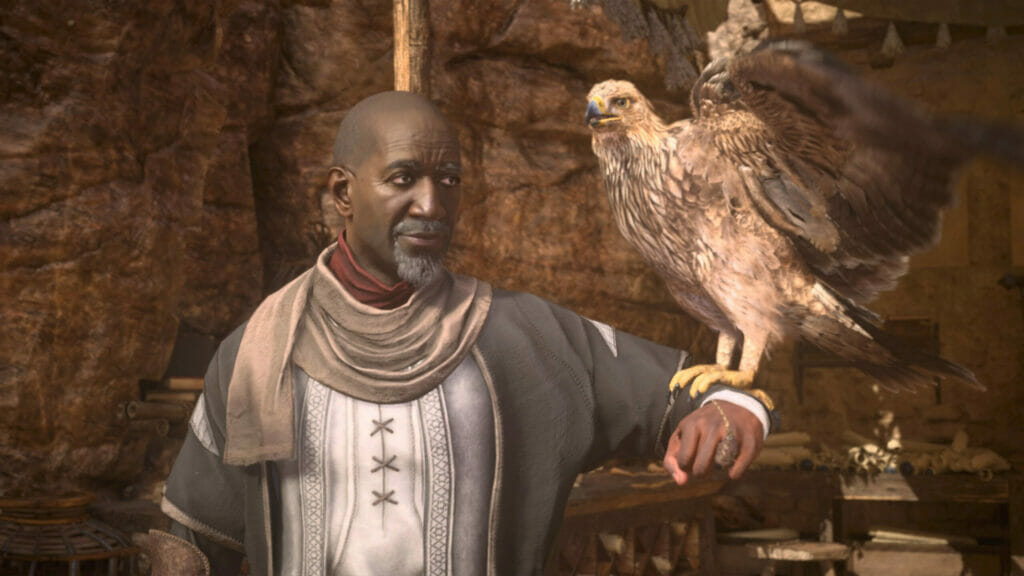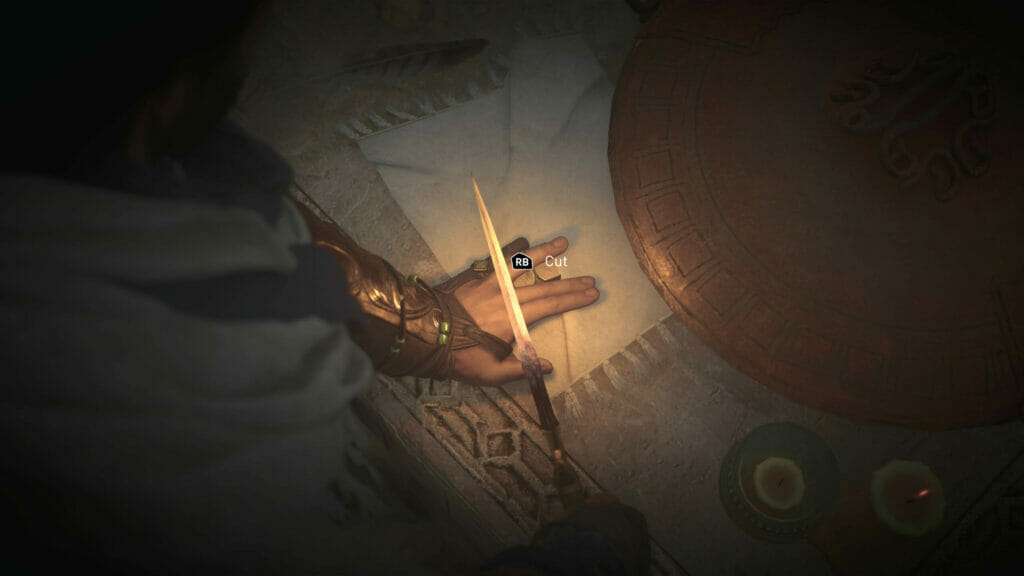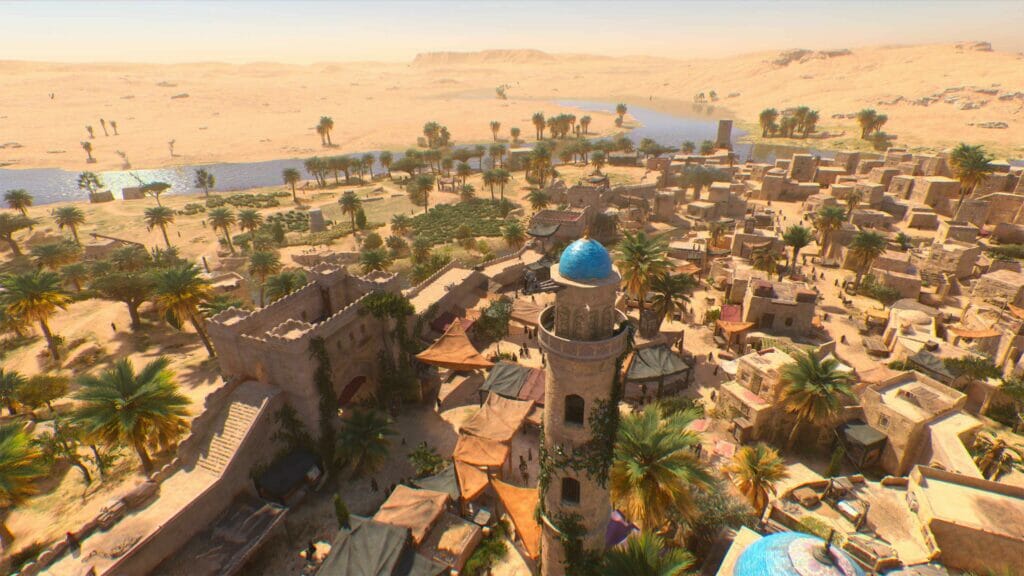Assassin’s Creed can be defined by four major eras. The original Assassin’s Creed through to Assassin’s Creed III featured claustrophobic corridors, horizontal traversal and extreme stealth focused gameplay. Assassin’s Creed IV: Black Flag, on the other hand, doubled down on the additional traversal III allowed, and gave players the entirety of the Caribbean Sea to explore. This freedom persisted with Assassin’s Creed Rogue, and even came into play in later titles. The franchise then took another turn to implement modern-day controls and flashy narratives with Assassin’s Creed Unity and then Assassin’s Creed Syndicate. Throughout all of these titles, however, the franchise always had a distinct style. It was nitty and gritty, and never deviated much from its roots as a hardcore stealth title with some parkour elements. Until, of course, Assassin’s Creed Origins released and completely tipped the franchise on its head. This ‘current’ era of Assassin’s Creed has come to a head with Assassin’s Creed Valhalla, and it is, quite honestly, the best. Now, however, Assassin’s Creed Mirage once again tips the bucket and changes up the formula.

If gamers were asked fifteen years ago about what they thought Assassin’s Creed would be like in 2023, the answer would be as far removed from what it has become – much like how Ubisoft treats Splinter Cell. The franchise may be nowhere near where it was at the start, but Ubisoft’s dedication to keeping the franchise evolving is commendable. So much so, the company has decided to return the series to its roots and give a few long-term fans what they have always wanted: original Assassin’s Creed gameplay in a decidedly modern and up-to-date engine. The result? Assassin’s Creed Mirage, a back-to-basics golden return to form for the fifteen-year-old franchise, but not without quirks.
Gone are the vast open deserts of Egypt and the Eastern European Peninsula. Instead, players return to densely populated, and – more importantly – tiered rooftop and horizontal geography of Baghdad and its surroundings. Assassin’s Creed Mirage tells the story of Basim Ibn Ishaq (Lee Majdoub), a master assassin from Assassin’s Creed Valhalla who has a certain darkness within him. It explores Basim’s youth and how he became integral to the Hidden Ones and the group’s uprising in the middle-east. Under the tutelage of Roshan (Shohreh Aghdashloo), Basim grows from street urchin to learned assassin, but a darkness haunts his dreams and it shows through his actions.
One thing to note is how Assassin’s Creed Mirage is not a flagship entry for the long-running franchise. Instead, it acts as a side story similar to Assassin’s Creed III: Liberation, Assassin’s Creed: Freedom Cry, or Assassin’s Creed Rogue. In scope, however, it is much closer to the latter than both former titles — Mirage is not a small title and should most definitely not be considered as such. Gamers will find the game’s narrative length comparable to the first Assassin’s Creed game, while additional stories and side content will pad it to more than double the original’s length. Most importantly, however, is how Ubisoft has managed to recapture the same feel of the older titles, while retaining all of the personality of the newer titles. For instance, as dark as the plot grows, it still has a lighthearted tone to it, and this feeling extends to gameplay as well.

Assassin’s Creed Mirage truly is an odd entity. Basim moves and feels like Ezio, yet he plays like Eivor. Parkour looks like it was ripped straight out of Black Flag, yet it controls and feels like it comes straight from Valhalla. Rooftops are clearly the main focus in Mirage, while assassinations actually kill enemies in one accurate go regardless of enemy level. Similarly, dodging and ducking through attacks feels a bit like a superhero adventure title, while dipping out of combat and into the shadows is still uniquely Assassin’s Creed. In fact, at first glance, it could easily be mistaken for a franchise remake. Just imagine if it had been set in The Holy Land during the Third Crusade with a protagonist called Altaïr Ibn-LaʼAhad? But I digress.
Anyone who has played a modern-day Assassin’s Creed game will feel right at home with Assassin’s Creed Mirage. Exploration may be tighter and traversal more claustrophobic, but controlling, choosing and outfitting Basim is literally copypasta from Assassin’s Creed Valhalla. Players can call their mount by holding the right D-pad button, while wielding a torch is absolutely necessary in some situations. Similarly, players can choose from any number of tools to make use of during combat, and pretty much every aspect of the character has some form of progression via an entire skills tab, and additional equipment menus.
Getting around has similarly never felt and looked better either. Buildings are dense and situated close enough to one-another for players to comfortably traverse rooftops, while washlines, beams, construction work, and even poles, are all positioned strategically along paths for even faster and easier movement across buildings. While going back to its roots may have been a good move for the franchise, it somehow has not eradicated the usual gripes associated with parkour gameplay… like jumping to absolutely insane off-camera points! When traversal absolutely hinges on pin-point accuracy throughout highly crowded streets and densely packed rooftops, having Basim launch himself into a river font below or across to a lower rooftop results in valuable time wasted. The occasional parkour hiccup aside, however, Assassin’s Creed Mirage is easily one of the best feeling games in the franchise.

For as little as modern-day Ubisoft likes Sam Fisher [that is how it feels at any rate], it is clear Basim pulls a lot of fisherisms. He is a glass cannon of note, capable of being downed in a single hit on normal and higher difficulties, while sticking to crowds and to shadows is, ultimately, his most important boon. While Assassin’s Creed Mirage hosts its fair share of combat scenarios, it actively encourages sleuthing through dungeons and castles — simply put: being a ghost may take longer, but it results in a much safer outcome. The two even share similar toolkits!
Basim’s tools, whether unlocked through the campaign or otherwise, pretty much all focus on stealth and distraction. Throwing Knives are unlocked first, allowing Basim to take out guards from a distance and in silence. This is followed by noisemakers, smoke bombs, and more. Furthermore, taking advantage of Eagle Vision will aid in highlighting enemies around corners and even showcase objectives from afar (read: Splinter Cell Sonar Vision Goggles). With that said, when combat does inevitably happen, it feels more like a temporary reprieve than a real nuisance. It is as tight and as fun as it was in Valhalla; and Basim’s lack of health and robustness also translates to enemies, often resulting in cool-looking knockout or kill animations.
Moreover, it must be noted how animations have never been smoother or looked better. Assassin’s Creed Mirage boasts some of the most crisp and rich texture work yet seen in the franchise. Colours simply pop, even though the franchise is known for its muted colours rooted in reality; while the skybox is absolutely gorgeous to look at. Similarly, players can expect vistas and views from any number of Eagles Nests scattered throughout Baghdad and its surrounding areas. The cities are beautiful in their golden sheen and when the sun hits everything just-right, the frisson automatically triggers.

There is no denying how Assassin’s Creed Mirage represents a notable return to the franchise’s roots, offering a fresh yet familiar experience for long-time fans. While the game takes place in the bustling city of Baghdad and explores the origins of Basim Ibn Ishaq, it successfully recaptures the essence of the earlier Assassin’s Creed titles, whilst retaining the personality and mechanics introduced in recent entries. Mirage’s tight and tiered rooftop traversal, along with its one-shot assassinations, hearken back to the franchise’s origins, but it seamlessly incorporates modern gameplay elements from titles like Valhalla. Despite occasional parkour hiccups, the game’s movement feels fluid and responsive, making it one of the best feeling entries in the series. Basim’s glass-cannon playstyle encourages stealth and clever tool usage, reminiscent of Sam Fisher from Splinter Cell. With its compelling narrative, engaging gameplay, and a balanced blend of old and new, Assassin’s Creed Mirage proves how the franchise’s evolution continues to surprise and captivate players, offering a golden return to form for this iconic series.
Verdict:
EXCEPTIONAL
| PROS | CONS |
| Pretty much just a remaster of AC1 | Parkour still need a bit of work. |
| Traversal feels wonderful | |
| Renewed focus on stealth gameplay is sublime |
Title reviewed on Xbox Series X with code supplied by Ubisoft.
Review Methodology | Ethics Policy
Junior Editor at Vamers. From Superman to Ironman; Bill Rizer to Sam Fisher and everything in-between, Edward loves it all. He is a Bachelor of Arts student and English Major specialising in Language and Literature. He is an avid writer and casual social networker with a flare for all things tech related.









